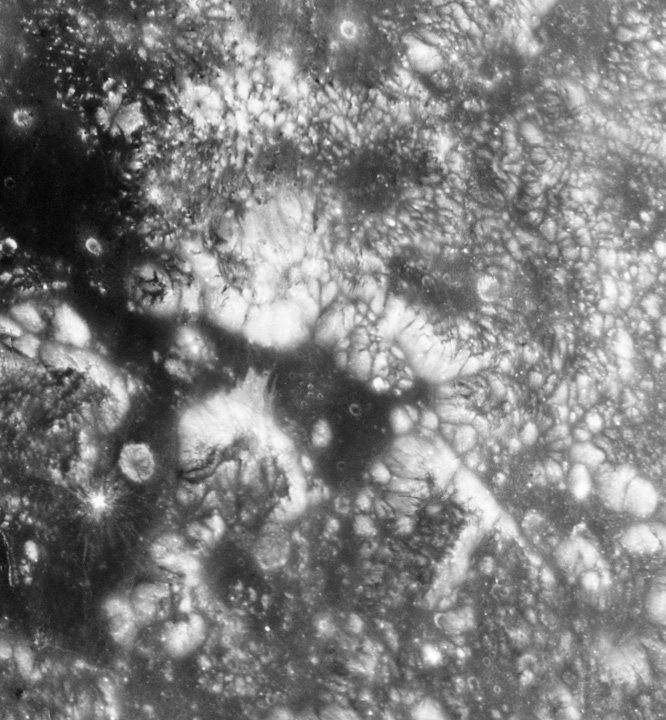
image of Apollo 17 landing area acquired by the Hubble Space Telescope
In 2018 the US plans to return to the Moon. Unlike Apollo where we merely made short visits, the new goal is to establish a long-term settlement that would ultimately become self sufficient in energy, water, air and food. Many recent discussions for the location of this base have centered on the lunar poles for two reasons. Because of their location they offer two valuable resources: nearly continuous sunlight to generate electricity, and permanent dark crater floors that may harbor ice useful for water, air and rocket fuel. Now Dave McKay, a prominent scientist at Johnson Space Center, has proposed that a better place for a base is on – and in – lunar pyroclastic deposits (LPD). Two great advantages of LPD are that we have sampled them at the Apollo 17 site (above), and we know they are actually there and at about 75 other sites on the Moon. McKay points out that the LPD probably contain oxygen, carbon and hydrogen, and He-3, which has long been praised as a fuel for future pollution-free energy production on Earth. Because LPD are fine grained and perhaps rock-free they will be the easiest lunar material to mine and prepare as a feed stock for extracting resources. Additionally, it would be possible to easily tunnel into 10 to 100 meters thick LPD for habitation and protection from radiation and micrometeorites. Finally, astronauts burrowed into LPD would be surrounded by scientifically fascinating material that could provide clues to many aspects of lunar history. This new proposal of where to locate a lunar base enlivens a vital discussion that will continue for years.
Technical Details:
None!
Related Links:
Rükl chart 25
Experts Poles Apart over Moon Landing Sites
Yesterday's LPOD: The Moon for Free
Tomorrow's LPOD: Layers of History
COMMENTS?
Register, Log in, and join in the comments.



